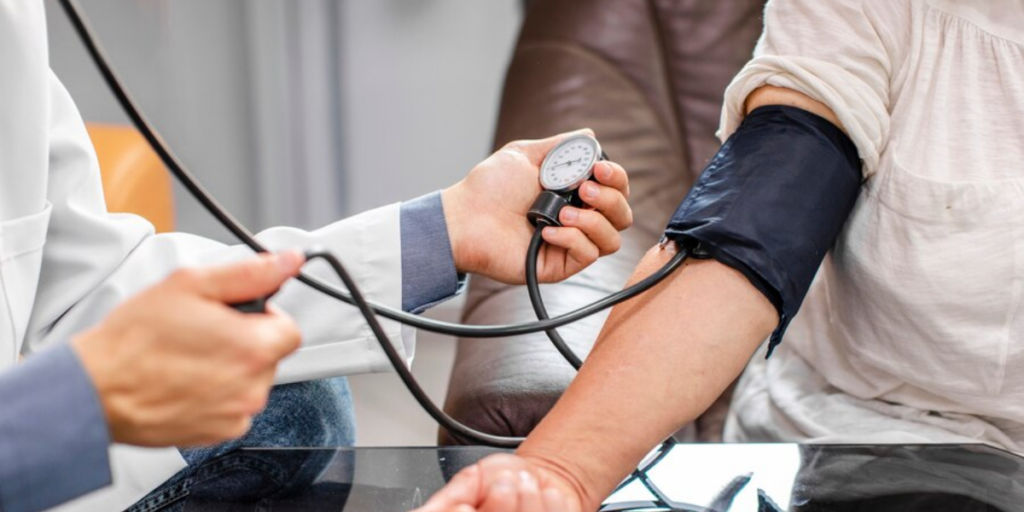
Warning Signs Of High Blood Pressure You Shouldn’t Ignore
Did you know that high blood pressure can be a quiet but fatal illness if left untreated? Also referred to as hypertension, high blood pressure can go undiagnosed in many cases. It requires the heart to work considerably harder to circulate blood throughout the body.
The best method to determine whether your blood pressure is higher than usual and raises your risk of heart attacks and strokes is to get your levels checked.
This blog discusses the signs and symptoms of high blood pressure.
What is High Blood Pressure?
High blood pressure, often known as hypertension, is a common disorder that can affect people of any age. It is characterized by an increase in pressure within the body’s major arteries, which puts strain on the heart and artery walls. Your risk of having a heart attack, stroke, or blood vessel rupture increases if you have high blood pressure.
Signs And Symptoms Of High Blood Pressure
It can be challenging to recognize because high blood pressure frequently has no symptoms.
If you do encounter any of the following signs, a high blood pressure reading may be the cause:
● Chest pain

Chest pain can be a concerning symptom of high blood pressure, indicating possible heart strain or angina. It may manifest as tightness, pressure, or discomfort in the chest area, often radiating to the neck, arms, or jaw. Prompt medical attention is crucial to rule out any serious cardiac complications.
● Headaches
It is a common sign of hypertension. Persistent headaches, especially in the mornings, can signal elevated blood pressure levels. These headaches may range from mild to severe and typically occur at the back of the head.
● Fatigue
Feelings of fatigue and exhaustion, even after adequate rest, are common symptoms of high blood pressure. Elevated blood pressure levels strain the cardiovascular system, leading to increased fatigue and reduced energy levels.
● Dizziness

Dizziness or lightheadedness can occur when blood pressure spikes or fluctuates significantly. As the brain receives less oxygenated blood, this symptom may be accompanied by feelings of imbalance, vertigo, or faintness.
● Irregular heartbeats
High blood pressure can cause disturbances in the normal rhythm of the heart, resulting in palpitations or irregular heartbeats. These sensations may manifest as fluttering, pounding, or skipped beats, which can be alarming and concerning for individuals experiencing them. It’s essential to monitor blood pressure regularly and consult a healthcare professional if you notice any unusual heart rhythms or symptoms associated with high blood pressure to prevent potential complications.
● Blurred vision
Blurred or impaired vision can be a warning sign of hypertensive retinopathy, a condition caused by damage to the blood vessels in the retina due to high blood pressure. If not treated timely, this may lead to partial vision loss or even blindness.
● Shortness of breath
Shortness of breath, especially during physical exertion or when lying flat, may indicate heart failure or pulmonary congestion resulting from uncontrolled high blood pressure. This symptom of hypertension requires immediate medical attention to prevent further complications and improve respiratory function.
● Nose Bleeding

While nosebleeds can sometimes happen due to various reasons, frequent or sudden nosebleeds could be associated with high blood pressure. When blood pressure is elevated, it puts increased pressure on the blood vessels throughout the body, including the delicate vessels in the nose. This elevated pressure can cause these tiny vessels to rupture, leading to nosebleeds.
Reasons for High Blood Pressure
The following are the reasons for high blood pressure:
- Hereditary
- Not enough exercise
- Smoking
- Age
- Obesity
- Drinking too much alcohol or caffeine
- Eating too much salt
- Stress
- Lack of sleep
- Lack of fruit and vegetables
Note: Most reasons for high blood pressure are preventive and can be taken care of with little alteration to diet and lifestyle.
Conclusion
So, If you don’t make any changes, you run the danger of developing major health issues from your high blood pressure. This covers heart-related disorders including vascular dementia, aortic aneurysms, heart failure, heart attacks, strokes, and renal disease. You can use blood products and plasma substitutes along with maintaining a proper diet and lifestyle to subside your high blood pressure.
